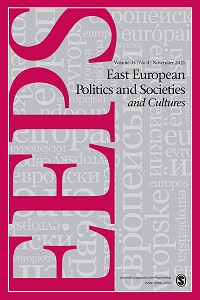Looking to the Past to Survive the Future: The Hungarian Minority in Slovakia
Looking to the Past to Survive the Future: The Hungarian Minority in Slovakia
Author(s): Susan DivaldSubject(s): Civil Society, Political history, Transformation Period (1990 - 2010), Present Times (2010 - today), Inter-Ethnic Relations, EU-Accession / EU-DEvelopment, Ethnic Minorities Studies, Politics and Identity
Published by: SAGE Publications Ltd
Keywords: history; ethnic minorities; Hungarian; cultural commemoration;
Summary/Abstract: With reference to the Hungarian minority’s overarching concern over its declining population in Slovakia, this article reveals how different elements of the past are activated, remembered, and renegotiated to ensure the minority’s cultural survival. Using elite interviews, party documents, and a detailed analysis of two local newspaper archives in Hungarian, I unpack how memory and politics interact in the post-EU accession period. First, I uncover how political and civil society actors use acts of commemoration as a conduit to circulate certain narratives of the Hungarian minority identity. Through remembering historic Hungarian leaders and events, elites affirm and construct the minority identity, thus enabling its cultural reproduction. The Habsburg and Austro-Hungarian Monarchy period is referred to most frequently with the celebration of national heroes. Events spanning the twentieth century are generally mourned as painful and detrimental for the Hungarian minority. While the acts of commemoration are “soft” measures to ensure cultural survival, Hungarian political actors also desire “hard” guarantees through institutional measures, best encapsulated by their desire for autonomy arrangements. However, the Slovak nation’s own past of claiming autonomy and their eventual secession from Czechoslovakia in 1939 conditions the cultural rules around language and the appropriate vocabulary that Hungarian elites can use. Consequently, Hungarian minority elites appropriate the past strategically in two ways. They readjust their tactics through using different vocabulary to claim autonomy and second, they pursue policy reforms across areas such as education and regional development, thus making the de facto possibility of autonomy more palatable to their Slovak counterparts.
Journal: East European Politics and Societies
- Issue Year: 36/2022
- Issue No: 01
- Page Range: 248-271
- Page Count: 24
- Language: English
- Content File-PDF

